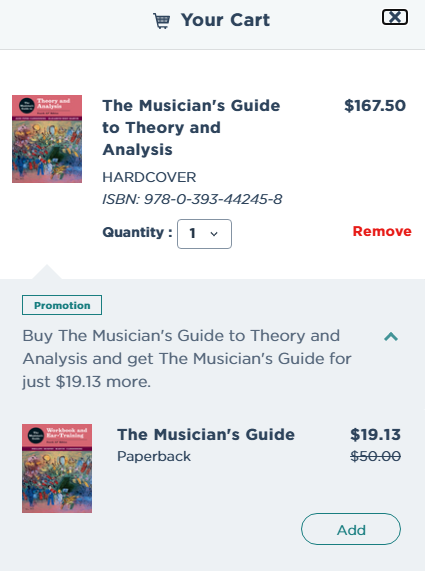AP Music Theory
Online for the 2025-2026 School Year
Teacher: Hannah Jackson
Email: hmjackson90@gmail.com
Email: hmjackson90@gmail.com

COURSE DATES: Sept 1-May 22, with the following breaks: Nov 24-28, Dec 22-Jan 2, and March 9-13.
The 2026 AP® Music Theory exam will take place on Monday, May 11, at 12 noon (local time).
TUITION for Credit:
- $875 if payment is received before July 1; $900 effective July 1.
- Cost of required texts is additional.
TUITION for Audit:
- $350 (Auditing includes access to the syllabus and all assignments/materials/assessments on the course website, but does not include instructor feedback, grades, or participation in live sessions.)
LIVE SESSIONS:
This course includes two required live sessions per week: those will be held on Tuesday and Thursday, 10:00-11:00am (Eastern Time).
COURSE OBJECTIVES:
AP® Music Theory offers the equivalent of a first-year college course sequence in music theory and aural skills. As such, it provides students a thorough grounding in core concepts such as harmony, counterpoint, chorale-style voice-leading, and musical structure, and also with "hands-on" training in such musicianship skills as sight-singing, interval and chord recognition, and melodic and harmonic dictation. Students will learn to analyze written and performed music, to understand the composer's techniques as they relate to melody, harmony, phrase structure, and texture, and to describe these phenomena with a sophisticated musical vocabulary. We will focus on Western tonal music of the common-practice period (the Baroque through early-Romantic eras), as this is the music that generated and best exemplifies the theory concepts covered in this class.
Along the way, this course will prepare students to take the College Board AP® Music Theory exam. Students who score well on this exam may be eligible to receive college credit, and/or placement in a higher-level music theory class in college (depending on the policy of that institution).
WHO SHOULD APPLY?
- High school students who can handle a college-level workload, have a background in music, and are enrolled in formal music instruction elsewhere (private lessons, choir, orchestra, etc.)
- Music literacy (the ability to read music proficiently in at least one clef) is an essential prerequisite for this class.
- Access to a piano, though not required, will help to integrate the student's conceptual understanding, kinesthetic awareness, and aural skills. Basic piano skills (the ability to play scales in different keys) are recommended.
- We will develop and hone our sight-singing skills during the live "lab" sessions. While singing in front of others can seem intimidating, I try to make this as fun and comfortable as possible!
- Historically, the students who succeed in this course are self-disciplined, detail-oriented, and motivated by a hunger for understanding.
- Prior to registration, students must submit an entrance exam and an application. Please email those documents to hmjackson90@gmail.com.
COURSE FORMAT:
This class is structured around two core components:
- Written theory: prerecorded video-lectures, reading assignments, and weekly homework tasks (to include worksheets, listening/analysis assignments, compositions, and discussion board posts) develop students' understanding of melodic, harmonic, and formal organization.
- Aural skills: ear-training, singing, and critical listening skills are practiced during the live "lab" sessions each week.
Students' progress in both areas is reinforced and assessed via quizzes, module exams, aural skills workshops, and midterm/final exams. Students complete a final project (focused on analysis or composition) in the spring.
ADDITIONAL INFORMATION:
- Expectations:
- Time commitment: this varies widely by student, but the total workload for this class may reach 6-8 hours/week.
- Live session attendance and participation is required. Students are allowed a certain number of "free" absences per semester.
- Timely submission of work: due to the cumulative nature of the course material, I do adhere to a strict late-work policy. Extensions may be requested within reason, but after two weeks, unsubmitted work automatically receives a 0%.
- Feedback and Communication:
- As a rule, I grade and return assignments to students within one week.
- I usually communicate with students directly regarding their assignments/progress in the class, but I appreciate and welcome parental involvement, communication, and feedback, as well. I send students a weekly update email with upcoming assignments and other useful information; parents may opt to receive this email and may also request an observer account on our Canvas website.
REQUIRED TEXTS:
- Clendinning, Jane Piper, and Elizabeth West Marvin. The Musician’s Guide to Theory and Analysis: Fourth AP® Edition. New York: W.W. Norton.
- If you purchase the textbook from the publisher, a promo option to add a discounted workbook for an additional $19.13 should appear in your cart:

-
- Feel free to purchase a used copy of the textbook; just be aware that the access code for the online playlist of musical examples only comes with a new textbook. While this audio playlist is optional, I believe that it's a helpful resource and worth the investment.
- The e-book is an economical option that also include access to the online playlist.
- Clendinning, Jane Piper, and Elizabeth West Marvin. Workbook and Ear-Training for The Musician’s Guide to Theory and Analysis (Fourth AP® Edition). New York: W.W. Norton.
- The workbook must be purchased new.
- The publisher offers a package deal when you order the textbook (hardcover) and workbook together. (See note above.)
- At checkout, please designate your "school" as follows: select "Pennsylvania" as your school's state, then enter "PA Homeschoolers AP Online, Kittanning" in the school name box.
- Buonviri, Nathan O. 2015. Building Better Dictation Skills.
TECH REQUIREMENTS:
- We will use Zoom for our live sessions. Students will need a reliable high-speed internet connection.
- Students will need a webcam and mic (computer built-in is fine). Audio and video participation in live sessions is required.
- Students will need to scan workbook pages (or take a picture with an app like Cam Scanner) and submit in PDF format.
ABOUT THE INSTRUCTOR:
I've taught AP® Music Theory with Pennsylvania Homeschoolers since 2017. I hold a degree in music theory from Temple University, where I also studied viola performance, and am so grateful for the opportunity to share this subject that I love with the enterprising performers, composers, and thinkers of the homeschool community.
My background in the world of homeschooling extends to my own student years, as well as to my work as a tutor in various subject areas. Out of that background comes my goal for this class: to help families realize their vision for crafting a superior and singular home-education experience. While my students tend to perform very well on the AP® exam, my chief desire is for them to encounter the marvelously rich tradition of Classical music in a way that far outlasts the exam.
When I'm not teaching or thinking about music, I enjoy hiking local trails with a good audiobook for company, ecological gardening (using native plants to support wildlife), and improvising in the kitchen.